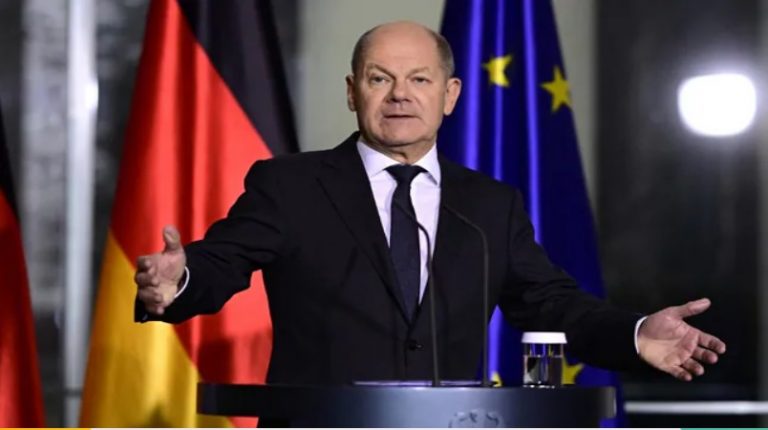
German Chancellor Olaf Scholz has publicly opposed the demand from US President-elect Donald Trump for NATO members to increase their defense spending to 5% of their GDP. Scholz emphasized the significant financial implications, stating that for Germany, such an increase would mean an additional expenditure of around 200 billion euros annually, which is almost half of the country’s federal budget of approximately 490 billion euros. He argued that this would require either massive tax increases or substantial cuts to other important domestic programs.
Scholz advocated sticking to the current NATO guideline of 2% of GDP, which Germany has already committed to achieving, highlighting that Germany has roughly doubled its defense spending in recent years and has also allocated an additional one-off sum to upgrade its armed forces post the 2022 Russian invasion of Ukraine. This stance reflects a broader European sentiment where many countries find the 5% target to be politically and economically unfeasible.
European defense policies are multifaceted and involve a combination of national defense strategies and collective efforts through the European Union (EU) and NATO. Here’s an overview based on recent developments and trends:
Register for Tekedia Mini-MBA edition 19 (Feb 9 – May 2, 2026): big discounts for early bird.
Tekedia AI in Business Masterclass opens registrations.
Join Tekedia Capital Syndicate and co-invest in great global startups.
Register for Tekedia AI Lab: From Technical Design to Deployment (next edition begins Jan 24 2026).
Common Security and Defence Policy (CSDP): The EU’s Common Security and Defence Policy (CSDP) is a key framework that enables member states to undertake crisis management operations, conflict prevention, and peacekeeping missions, both in civilian and military capacities.
The CSDP has been actively evolving since its inception in the late 1990s, with significant policy developments including the European Union Global Strategy (EUGS) adopted in 2016, which aims to enhance the effectiveness of EU defense capabilities. The CSDP operates through various missions and operations globally, with around 24 ongoing as of late 2023, focusing on areas like maritime security and counterterrorism.
European Defence Fund (EDF) and Industrial Strategies: The European Defence Fund, established with a budget of €7.3 billion for 2021-2027, is designed to foster research and development in defense, aiming for a more integrated and competitive European defense market. This initiative seeks to reduce fragmentation in defense procurement across EU countries, enhancing cooperation and capability development. The European Defence Industrial Strategy (EDIS) further aims to move towards a more structured approach, focusing on long-term defense industrial readiness and responsiveness.
Permanent Structured Cooperation (PESCO): PESCO is another critical aspect, allowing interested EU member states to collaborate more closely on defense matters. Launched in 2017, it has been pivotal in fostering structured cooperation in capability development, including projects like the European Military Air Transport Fleet and the European Patrol Corvette.
Despite these initiatives, European defense policies face several challenges. These include insufficient military spending, fragmentation of defense markets, and the complex relationship with NATO, where the U.S. has traditionally been the dominant player.
There’s ongoing debate about European strategic autonomy versus reliance on NATO, with some advocating for a more independent European defense capability, while others stress the importance of NATO’s role, particularly in the context of the transatlantic alliance. The current geopolitical environment, including Russia’s actions in Ukraine, has spurred discussions on defense spending and autonomy, with voices like Mark Rutte suggesting a significant increase in defense spending to achieve a “European NATO”.
Sentiment in X posts reflects a broader discourse where there’s criticism of Europe’s military capabilities due to historical underfunding and a reliance on U.S. support. There’s also a divide on whether European defense should be autonomous or closely tied to U.S. strategic interests, highlighting a tension between French and Eastern European perspectives on defense policy.
European defense policies are in a state of flux, with efforts towards greater integration and capability enhancement within the EU framework, alongside the need to maintain strong NATO ties. The ongoing debate involves balancing national interests, collective security, and the financial implications of increased defense spending. The policies are not just about military strength but also about fostering a European defense technological and industrial base that can contribute to global security.



